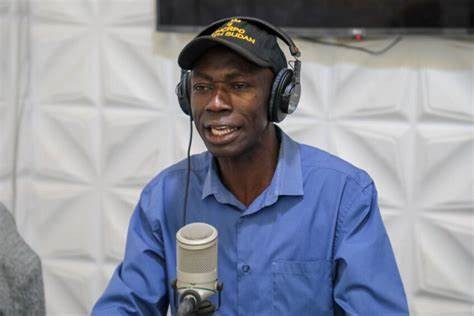
With the country stuck in a political deadlock and previous peace initiatives failing to yield results, South Sudanese civil society has announced a bold move to spearhead its own homegrown peace process aimed at restoring trust among political actors and ending cycles of violence.
The Executive Director of the Community Empowerment for Progress Organization (CEPO), Edmond Yakani, speaking on behalf of 13 citizen stakeholders who signed the 2018 Revitalized Agreement on the Resolution of the Conflict in South Sudan (R-ARCSS) as witnesses, declared that civil society will take primary responsibility to mediate between the country’s political leaders.
“South Sudan is in a confused and stacked position. All previous peace efforts, including the R-ARCSS, the Tumaini Initiative, and the Rome peace process, have reached stalemates,” Yakani said. “It is time for us, as citizens, to initiate a constructive homegrown approach to revive dialogue and push for a national consensus.”
The announcement comes after months of failed attempts to bring both signatory and non-signatory parties together. The Tumaini Initiative, facilitated by President Salva Kiir and his Kenyan counterpart William Ruto, was intended to foster inclusive dialogue with opposition groups.
Similarly, the Rome peace process under the Community of Sant’Egidio sought to broaden political inclusivity following the Vatican-hosted spiritual retreat. However, Yakani noted that all these efforts had stalled due to entrenched political mistrust and disagreements over the implementation of pending provisions in the peace deal.
“Citizens have paid an expensive price since 2013. We believe violence is not a viable option for resolving political differences. Dialogue remains the only way forward,” Yakani stressed, appealing to all political actors to embrace a genuine, inclusive, and unconditional dialogue.
It remains unclear whether political leaders will heed to this envisioned viable move planned to officially commence on September 12, marking the anniversary of the signing of the R-ARCSS, and will run until September 21, International Peace Day. The ten-day campaign, dubbed “National Peace Activism Days,” will focus on setting an agenda and building consensus among political stakeholders to transition the country from violence to sustainable peace.
Yakani called on President Kiir and all political leaders to give their full support to the initiative, which seeks to revive stalled discussions under the existing peace frameworks while merging them into a unified national dialogue platform.
“Our message is clear: put the guns down, respect each other’s voices, and use dialogue without preconditions. We cannot afford another cycle of violence,” Yakani concluded.
The move signals a growing determination by civil society to fill the void left by faltering regional and international efforts, raising hopes for a renewed push toward peace in Africa’s youngest nation.

